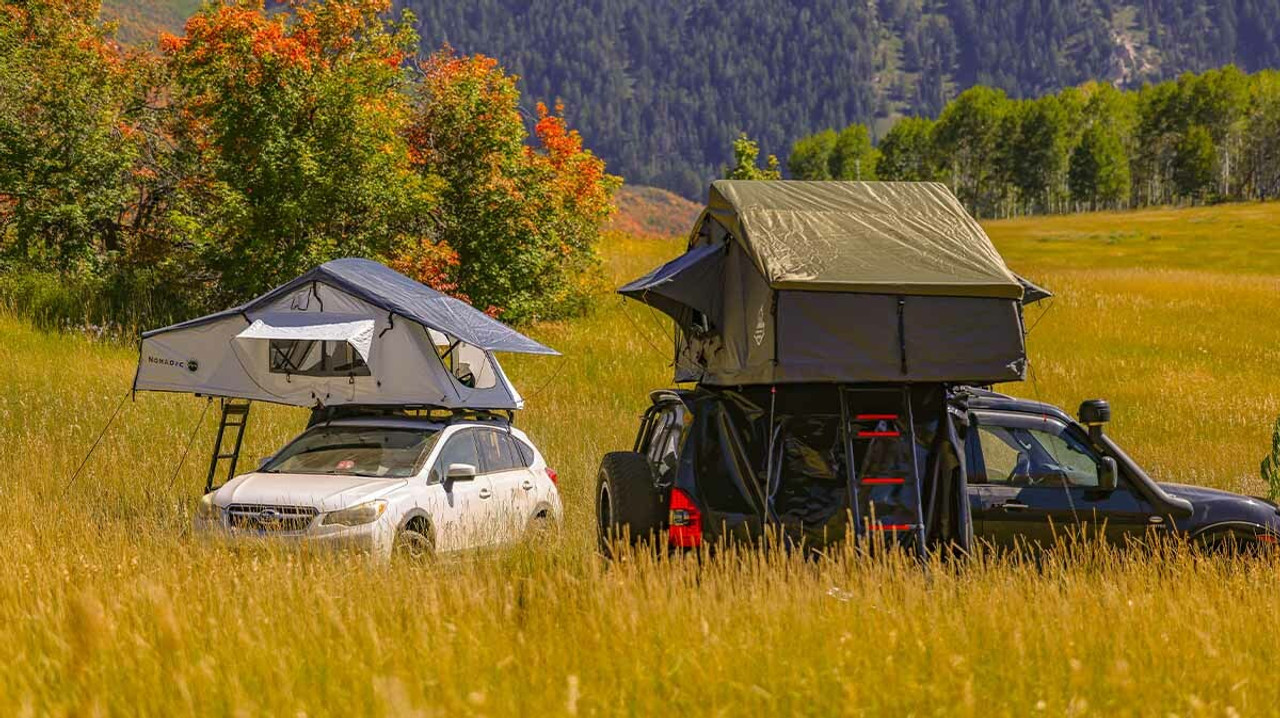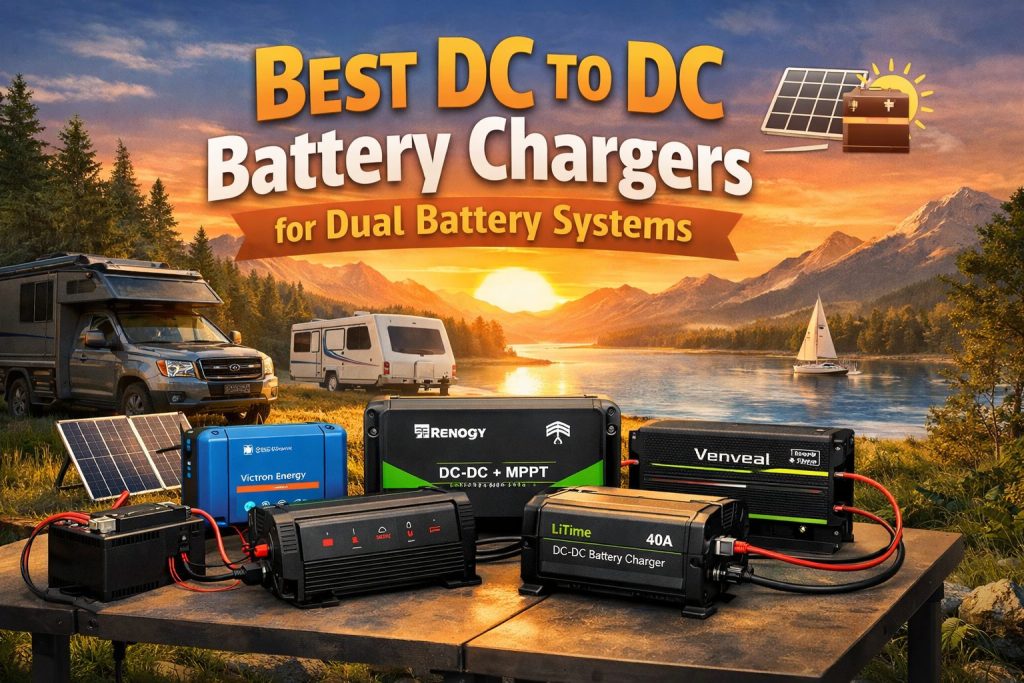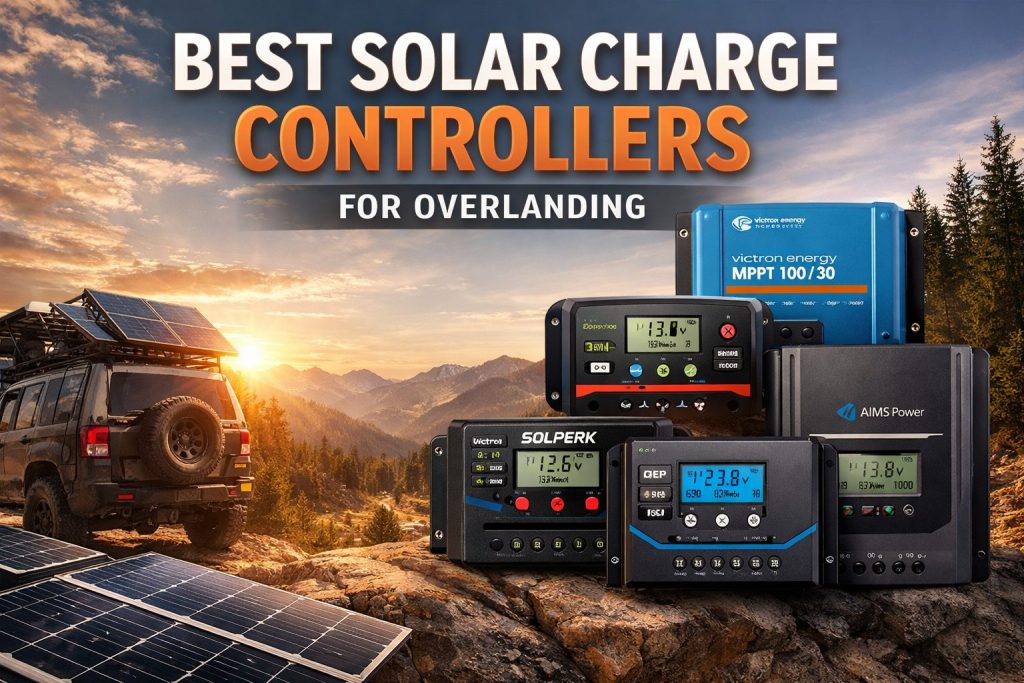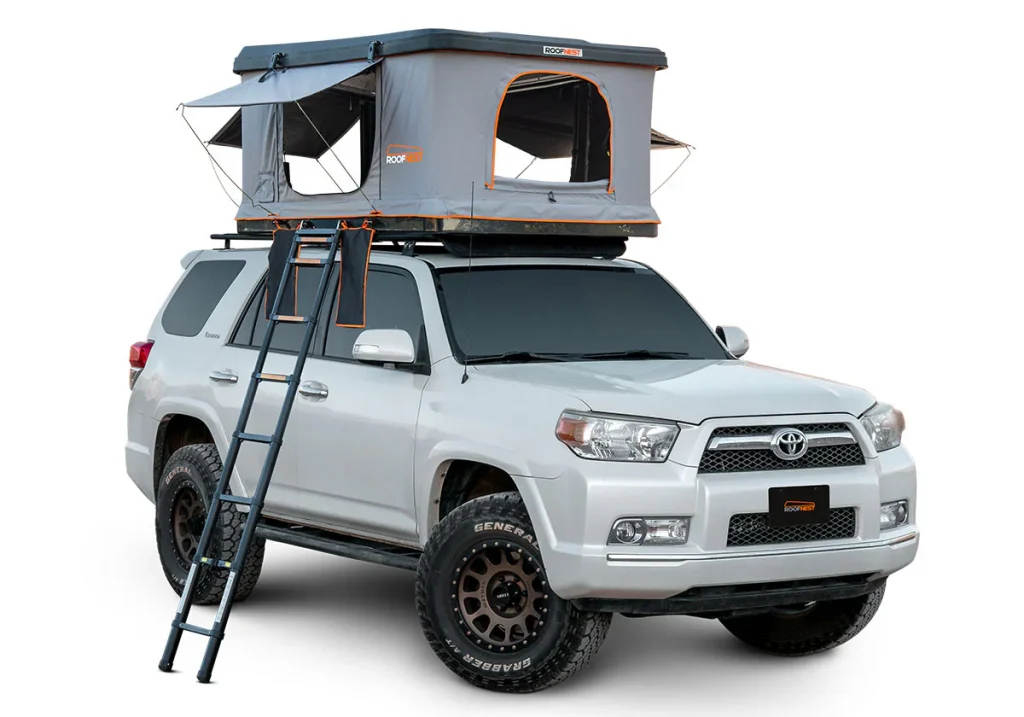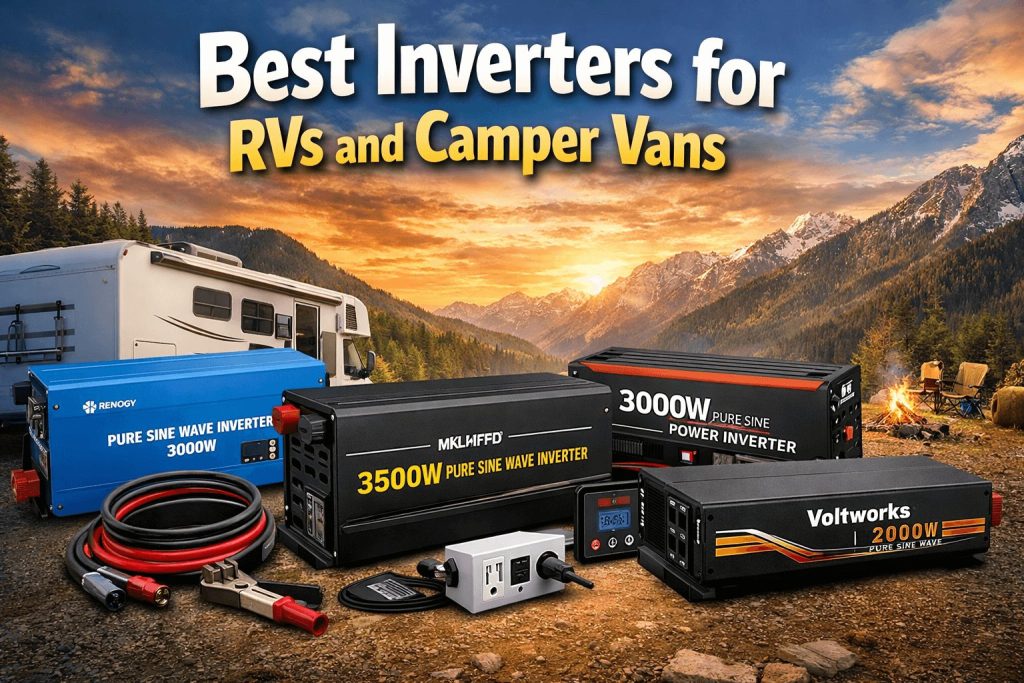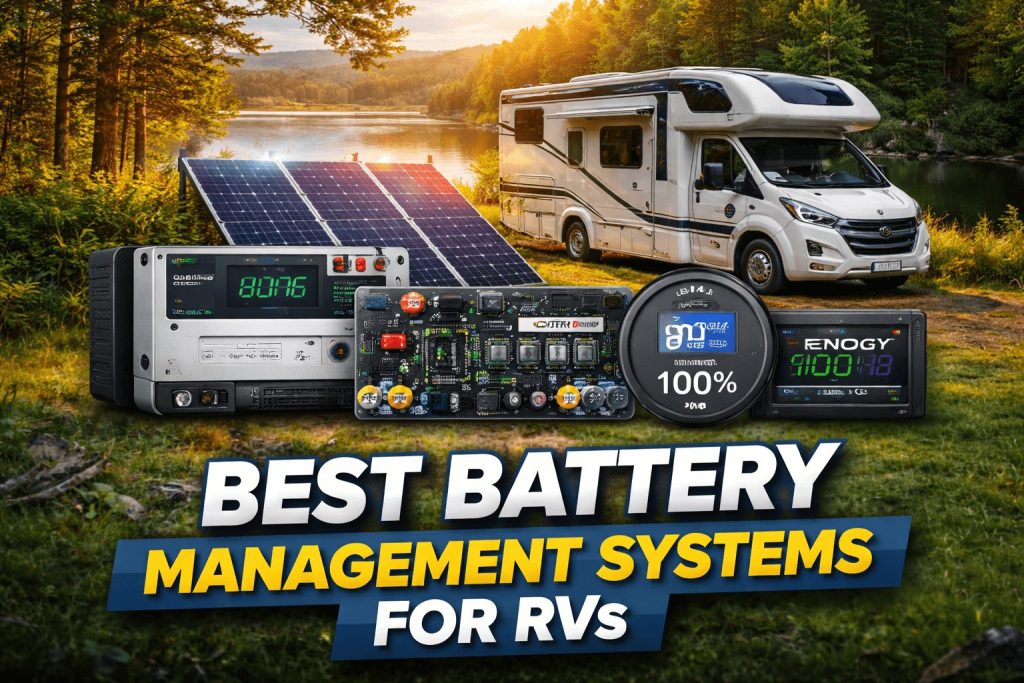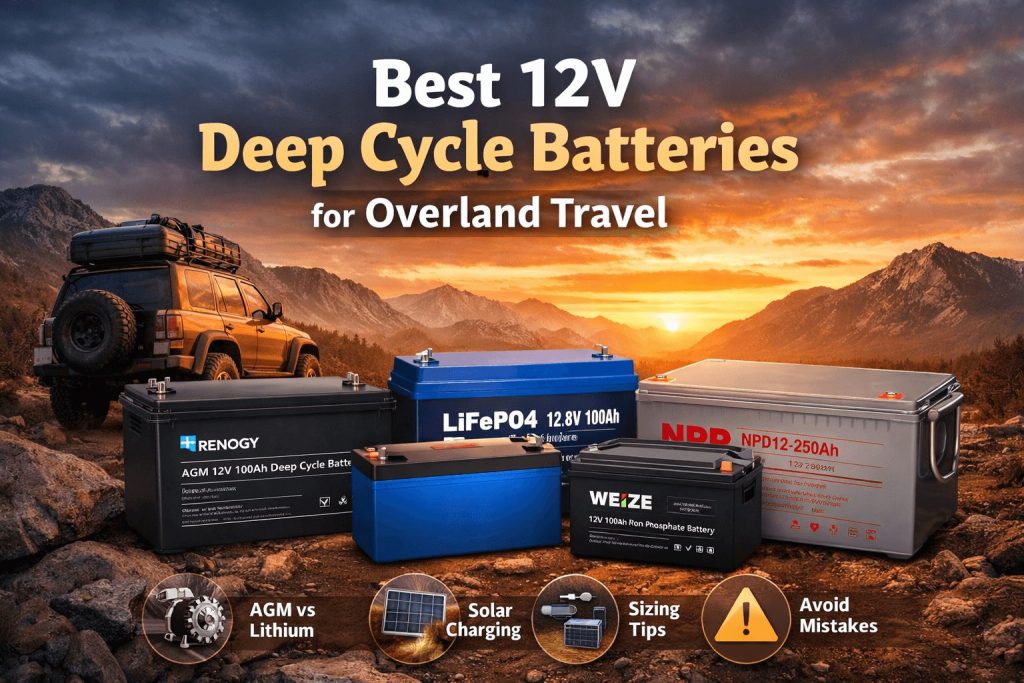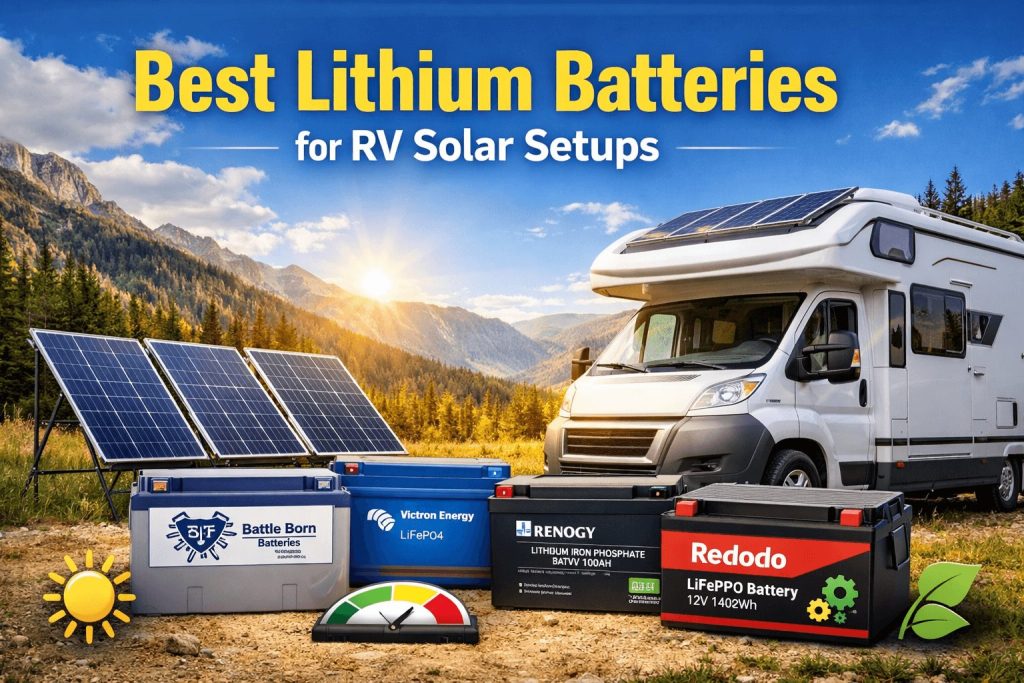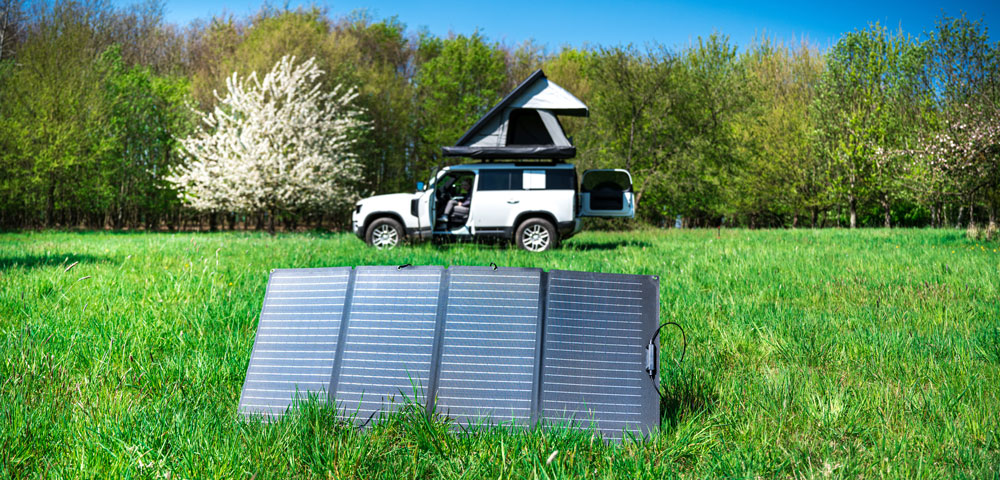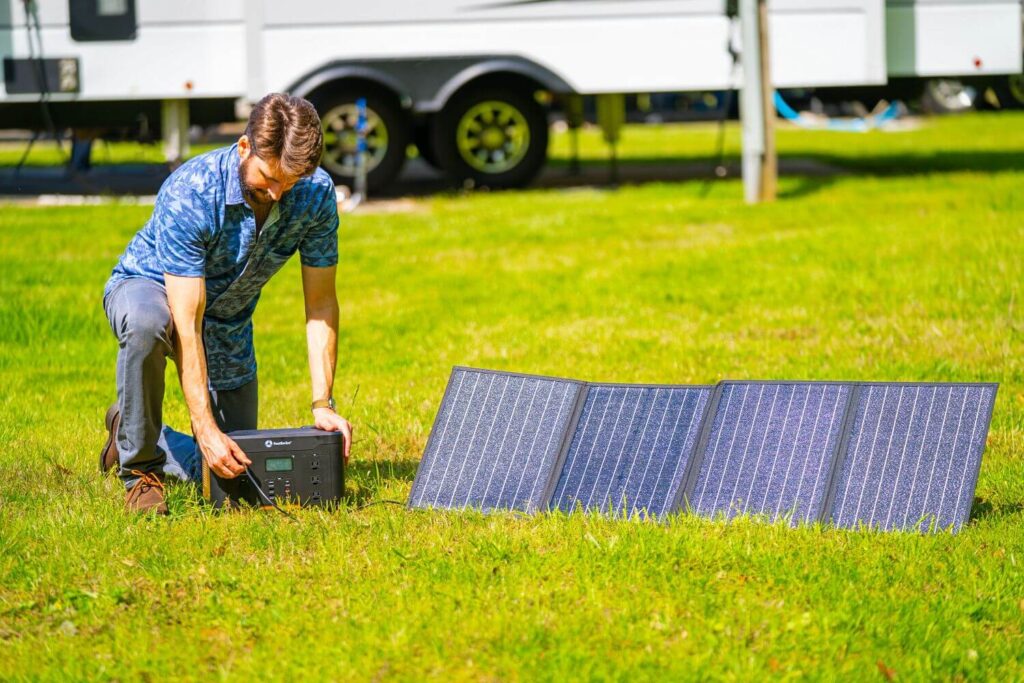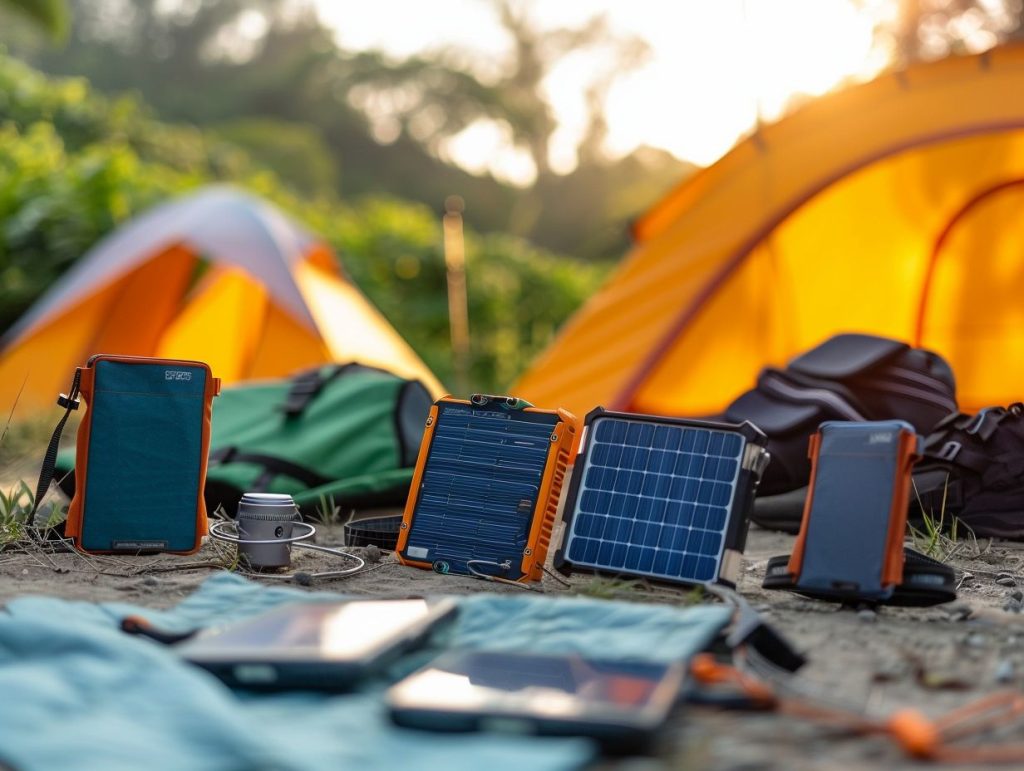Rooftop tents (RTTs) have become one of the most popular upgrades for SUV and Jeep owners who love camping, road trips, and overlanding. Unlike traditional ground tents, a rooftop tent mounts directly to your vehicle’s roof rack, giving you an elevated sleeping space that’s safe, comfortable, and quick to set up.
Among the two main categories — hardshell and soft shell RTTs — soft shells remain a favorite for many adventurers. They typically cost less, offer larger sleeping footprints, and are available in multiple sizes to fit couples, families, or solo travelers. Soft shell RTTs also fold out to create spacious sleeping areas, often with annexes or awnings for extra shade and storage.
As we head into 2025, the market for soft shell rooftop tents has grown significantly. Brands like Thule, Yakima, Smittybilt, and Overland Vehicle Systems are continuously improving their designs to provide better weather protection, more durable materials, lighter weights, and easier setups. Whether you’re a weekend camper looking for convenience or a dedicated overlander seeking rugged dependability, there’s a soft shell RTT that matches your needs and budget.
In this guide, we’ve researched and reviewed the best soft shell rooftop tents for SUVs and Jeeps in 2025, highlighting their specifications, pros and cons, and price points. By the end, you’ll have the knowledge to choose the right rooftop tent for your vehicle and adventures.
The Best Soft Shell Roof Top Tents of 2025
Thule Approach M — Best overall soft-shell RTT — Rating: 9.2/10
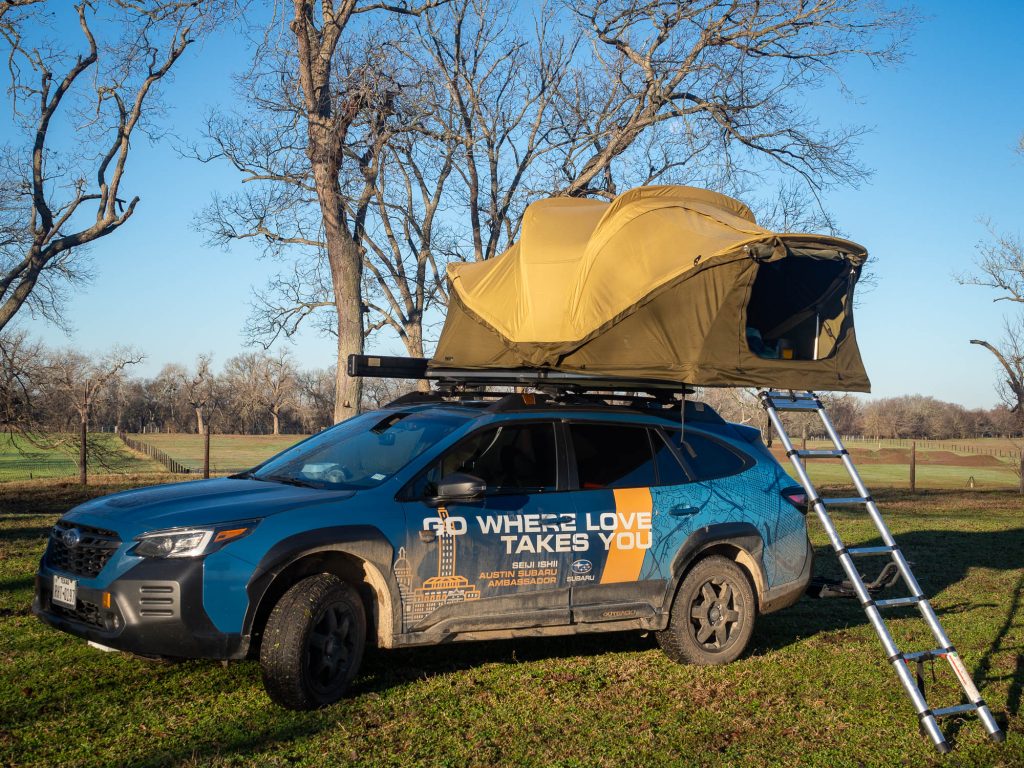
Thule’s Approach M is positioned as a premium, easy-to-use soft-shell rooftop tent that aims to combine roomy interior space with quick setup and high build quality. It’s aimed at families and couples who want near-ground-house comfort on the roof: a wide sleeping footprint, tall internal height for sitting up, and a mattress that’s thicker and more comfortable than typical budget RTTs. The Approach’s mounting system and flip-open design emphasize fast single-person setup (reports show set-up time measured in minutes), and Thule has engineered the shell, base, and fabrics to balance stiffness, insulation and weight. Overall it’s best for people who want a feature-rich soft-shell with premium fit and finish and don’t mind paying a higher price for it.
Specifications
| Spec | Details |
|---|---|
| Dimensions (Open) | 95 × 56 × 40 in |
| Dimensions (Closed) | 49 × 56 × 11 in |
| Sleeping footprint | 95 × 51 in |
| Peak internal height | ~ 40.2 in (~ 102 cm) |
| Weight | 128 lb (~ 58 kg) |
| Static weight capacity | 600 lb (~ 272 kg) |
| Minimum bar spread | 31 in (~ 79 cm) |
Pros
-
Very roomy sleeping area for a soft-shell — sleeps 2 adults (plus small child) comfortably.
-
Tall internal height (easy to sit up and move around).
-
Fast, tool-less mounting and quick fold/unfold operation compared with many traditional RTTs.
-
High-quality materials and mattress options; Thule emphasizes recycled/specially treated fabrics and a durable base.
Cons
-
Premium price compared with many other soft-shell tents — positioned at the higher end of the market.
-
Heavier than the most minimal soft-shell options (can be an issue for small SUVs with low roof load limits).
-
At ~49″ closed height on the M, it still adds profile and wind drag compared with ultra-low compact designs.
Price
-
Typical retail range (2024–2025): roughly $2,300–$2,700 USD (varies by retailer, regional pricing, and model size). Expect higher prices in some markets (and occasional promotions/discounts).
Thule Foothill (Tepui Foothill) — Best narrow / low-footprint option — Rating: 9.0/10
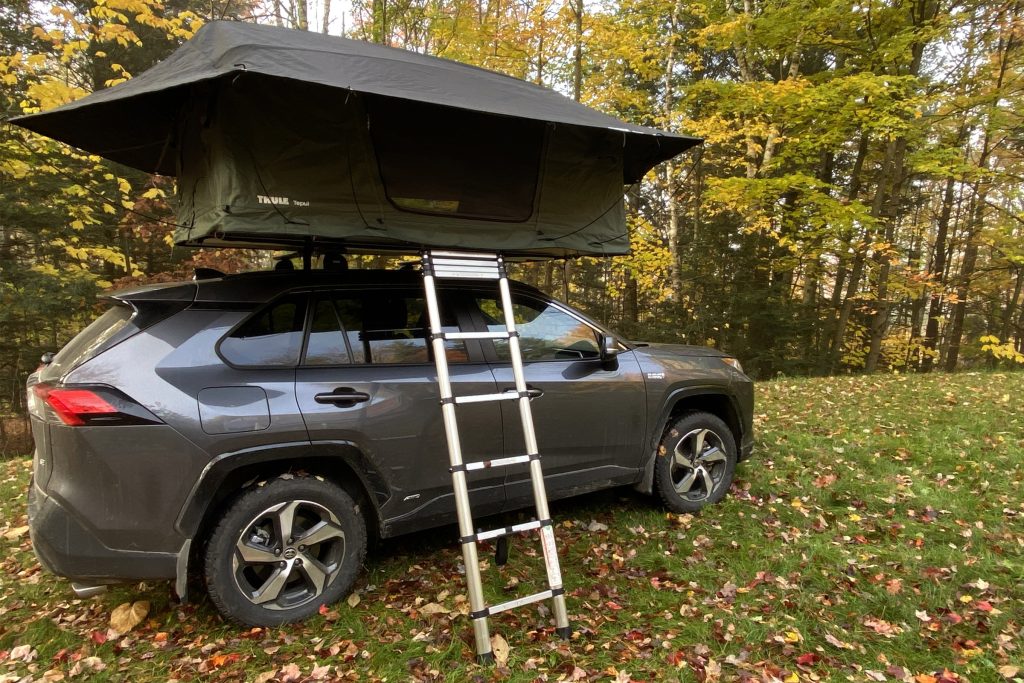
The Thule Foothill (formerly marketed as Tepui Foothill) is a deliberate redesign aimed at conserving roof real estate: it’s one of the narrowest RTTs on the market while still comfortably sleeping two. That narrow profile is the Foothill’s strongest advantage — it preserves roof space for bikes, kayaks, or a cargo box and reduces aerodynamic penalty compared with wider tents. The Foothill uses a flip-open design with internal telescoping frame poles for quick setup and a relatively low closed height so it’s also easier to store and drive under low clearances. It’s an excellent choice for active users who need a compact tent footprint without sacrificing sleeping comfort for two.
Specifications
| Spec | Details |
|---|---|
| Dimensions (Open) | 84 × 47 × 37 in |
| Dimensions (Closed) | 83 × 24 × 9.5 in |
| Sleeping footprint | 84 × 47 in |
| Peak internal height | ~ 37 in (~ 96.5 cm) |
| Weight | ~ 122 lb (~ 55.5 kg) |
| Static weight capacity | 600 lb (~ 272 kg) |
| Minimum bar spread | 24 in (~ 61 cm) |
Pros
-
Extremely narrow / low-profile when closed — saves roof space and improves aerodynamics vs. wider tents.
-
Sits low on the roof (9.5 in closed height) so easier to store and drive under low clearances.
-
Lightweight base construction and easy one-person setup with flip-open/telescoping pole design.
-
Good internal ventilation and well-thought pocket/storage locations for gear.
Cons
-
Narrow footprint means less lateral sleeping space — two adults fit but it’s snug compared with full-width tents.
-
Less versatile for families or for users who want a large built-in mattress and standing area.
-
Price positioned in the premium range for a compact 2-person tent; some buyers may prefer cheaper full-width options.
Price
-
Typical retail price (2024–2025): around $1,700–$2,000 USD depending on retailer and configuration (many outlets list an MSRP around $1,699.95).
Yakima SkyRise HD — Rating: 8.8/10
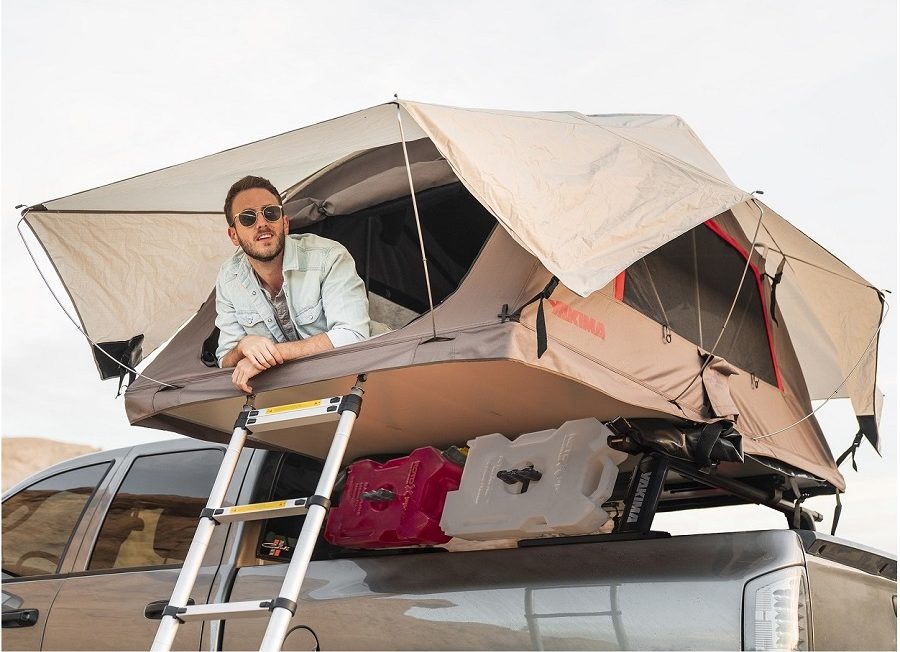
The Yakima SkyRise HD is a high-duty soft-shell rooftop tent made for those who camp often, in varied weather, and want premium materials plus user-friendly features. It balances ruggedness, comfort, and a relatively large sleeping area, making it ideal for small families or couples who like extra room. Below are its detailed specs, pros, cons, and pricing as of 2025.
Specifications
| Spec | Details |
|---|---|
| Dimensions open | 96 × 56 × 48 in (Medium size) |
| Dimensions closed | 58 × 48 × 16.5 in |
| Sleeping footprint | Same as floor dimensions: approx. 96 × 56 in (Medium), sleeps 3 but more comfortable for 2 with gear. |
| Peak internal height | ~48 in when open |
| Weight | Packaged weight ~154 lb 4.8 oz (≈70 kg) for the Medium version. |
| Static weight capacity | Holds up to 600 lb (≈272 kg) static load capacity. |
| Minimum bar spread | Minimum crossbar spread ~26 in; maximum ~40 in. |
Pros
-
Excellent build quality with durable 600D ripstop polyester fabric and a 3000 mm waterproof PU coating; rainfly is 210D ripstop polyester.
-
Spacious sleeping area, with large doors/windows & skylights, enabling strong ventilation and good views.
-
Thick, comfortable mattress (wall-to-wall), good comfort for longer camping trips. Removable cover & anti-condensation mat add convenience.
-
Secure mounting system with lockable low-profile clamps (SKS system), which improves theft prevention and ease of installation.
-
Suitable for 3-4-season use; good weather sealing and fly options.
Cons
-
Hefty weight: at ~154 lb, plus additional weight of ladder and mounting hardware; may push limits on roof load of some SUVs/Jeep setups.
-
Large closed size (especially height when folded) adds high profile; can affect clearance and aerodynamics.
-
Premium price compared to more minimalist soft-shell RTTs; some buyers may prefer lighter or smaller options for specific needs.
-
Setup and installation require aligning clamps, ladder, etc. Not the fastest “instant” deployment vs simpler flip/tent-on-rack designs.
Price
-
Typical retail price (2024-2025): approximately $2,500–$2,900 USD for the HD versions (medium size) depending on retailer, promotions, and shipping.
Smittybilt GEN2 Overlander (Soft Shell) — Rating: 8.3/10
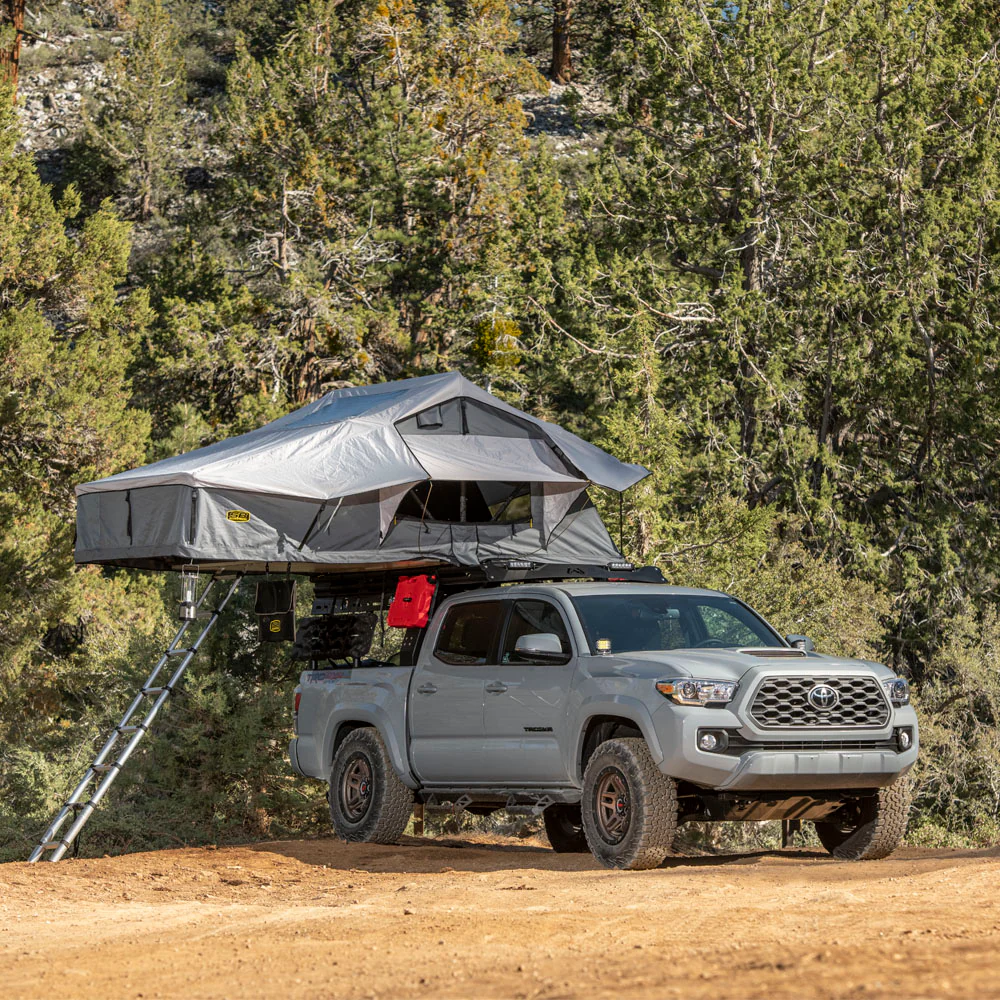
The Smittybilt GEN2 Overlander is a strong option especially for those who want a solid, roomy tent without stepping into the highest price tiers. It brings upgraded materials, a spacious interior, and a heavy-duty design while keeping the price more accessible than some premium competitors.
Specifications
| Spec | Details |
|---|---|
| Dimensions open | 95 × 56 × 51 in (Standard model) |
| Dimensions closed | (Not always explicitly stated) — Expect folded package size somewhat large given sleeping size and structure; likely similar to other soft-shell tents of this floor area + base + ladder. (Exact closed dimensions not consistently published) |
| Sleeping footprint | Full size approx. 92 × 55 in bed for standard version; for XL version even larger (king size). |
| Peak internal height | ~51 in (when open) |
| Weight | Not all sources list full packaged weight; but it’s a heavy, full-feature soft shell, including substantial frame and base; likely in range of 130-160 lb for standard or XL. (Exact weight for standard tent approx. heavier than minimal tents) – some sources say upgraded frame, thicker materials. |
| Static weight capacity | Max load rating ≈ 660 lb / 300 kg for the standard version; XL version even more. |
| Minimum bar spread | Not clearly given in all specs; likely similar to other tents of this size (you’ll need crossbars strong enough and spaced to support the base). Manufacturer instructions required. |
Pros
-
Very good value: offers substantial size and features at a lower cost compared to many premium tents.
-
Strong build materials: 600D heavy-duty ripstop polyester, waterproof polyester top, durable base structure.
-
Large internal height and spacious bed footprint — nice for 2-3 people or one with gear.
-
Additional features: LED interior lighting, telescoping ladder, good ventilation with “no-see-um” mesh, quality rainfly, strong zippers.
Cons
-
Bulk and weight make it less ideal for smaller SUVs or Jeeps with low roof load limits. Transporting and mounting is more effort.
-
Closed size (though not always clearly published) tends to be large—storage, clearance, and shipping can be more challenging.
-
Some users report that while the materials are good, they’re not quite as premium or refined in finish as ultra-high-end tents (sewing, accessory fit, etc.).
-
Setup might take more effort than ultra-fast flip-open designs due to bigger size, more components.
Price
-
Typical retail (2024-2025):
-
Standard version: about $1,400–$1,600 USD depending on retailer and configuration.
-
XL version (sleeps more / larger bed) runs higher, perhaps $1,900–$2,100 USD or more.
-
Overland Vehicle Systems (OVS) — Nomadic 3 / Nomadic 3 Extended — Rating: 8.4/10
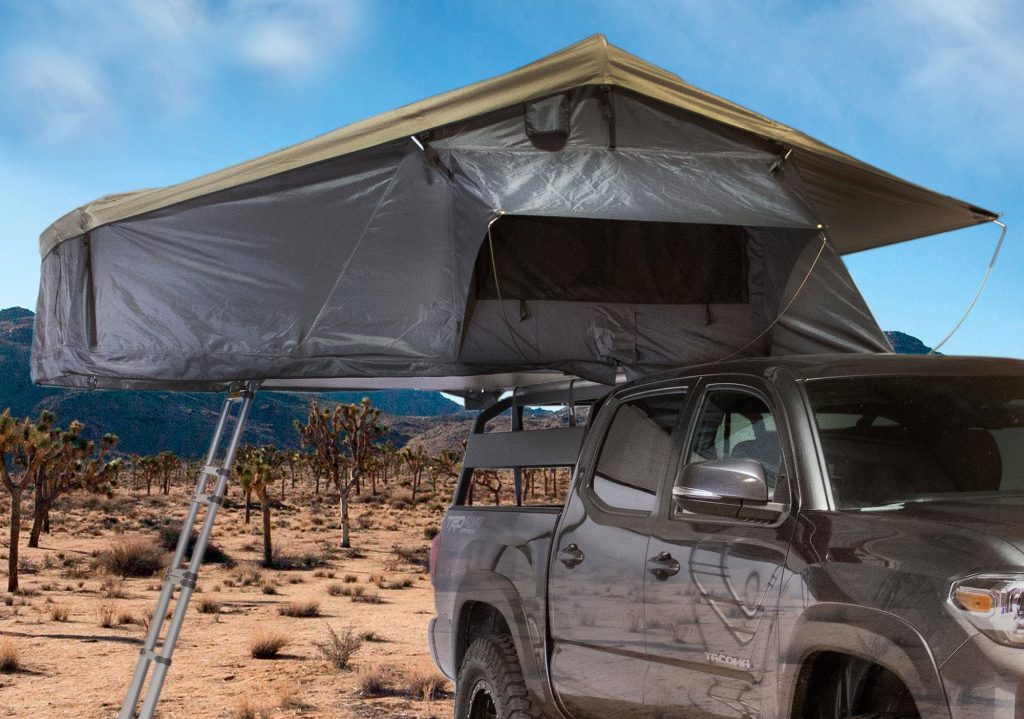
The OVS Nomadic 3 (and its Extended version) is a heavy-duty, spacious soft-shell rooftop tent designed for serious overlanders. With ample sleeping capacity (three persons), premium materials, and excellent ergonomic design, it delivers a lot of value, especially for those needing size, durability, and comfort rather than ultra-light weight or ultra-compact size.
Specifications
| Spec | Details |
|---|---|
| Dimensions open | 63 in (W) × 122 in (L) × 51 in (H) |
| Dimensions closed | 63 in (W) × 47 in (L) × 14 in (H) |
| Sleeping footprint | 63 in × ~94.5 in |
| Peak internal height | ~51 in |
| Weight | Nomadic 3 Extended: ~165 lbs |
| Static weight capacity | ~850 lbs for Extended version (includes occupants + gear) |
| Minimum bar spread | Using standard vehicle crossbars sufficient for ~63 in width; closed width is 63 in so check crossbar compatibility. Specific min spread not clearly published; vehicle rack load capacity and spacing must be verified. |
Pros
-
Very large sleeping area (three persons) with tall internal height (~51 in), so sitting upright is comfortable.
-
Durable build: 600D waterproof rip-stop polyester/cotton canvas body, 420D Oxford rainfly, insulated one-piece aluminum base, stainless hardware.
-
Good accessories: large mattress (3″ memory foam in many models), various storage pockets, telescoping ladder.
-
Extended version gives additional space for gear or more comfortable sleep for three; good value for what you get.
-
Strong warranty (4 years in many markets) and solid water protection.
Cons
-
Heavy: at ~165 lbs for the Extended version, plus ladder and mounting hardware; adds significant weight on the roof rack, affecting vehicle stability, fuel economy, and requiring strong rack & roof strength.
-
Closed dimensions are still large: takes up a lot of roof real estate when folded, limiting how much other gear (bike racks, kayaks, etc.) can be carried.
-
Cost per pound / transport when shipping is higher; in some regions customs / shipping fees may add more.
-
The mattress and comfort are good, but the setup and breakdown (while marketed ~3-5 minutes for setup in practice) still require two people in many cases due to size.
Price
-
Typical retail price (2024-2025):
Extended version: around US$1,399 for some standard models; more for premium or Arctic / heavy-duty versions. -
Price tends to increase with added features (e.g. premium rainfly, insulation, color options).
Roofnest Meadowlark (Soft Shell Hybrid / Lightweight Soft Option) — Rating: 8.0/10
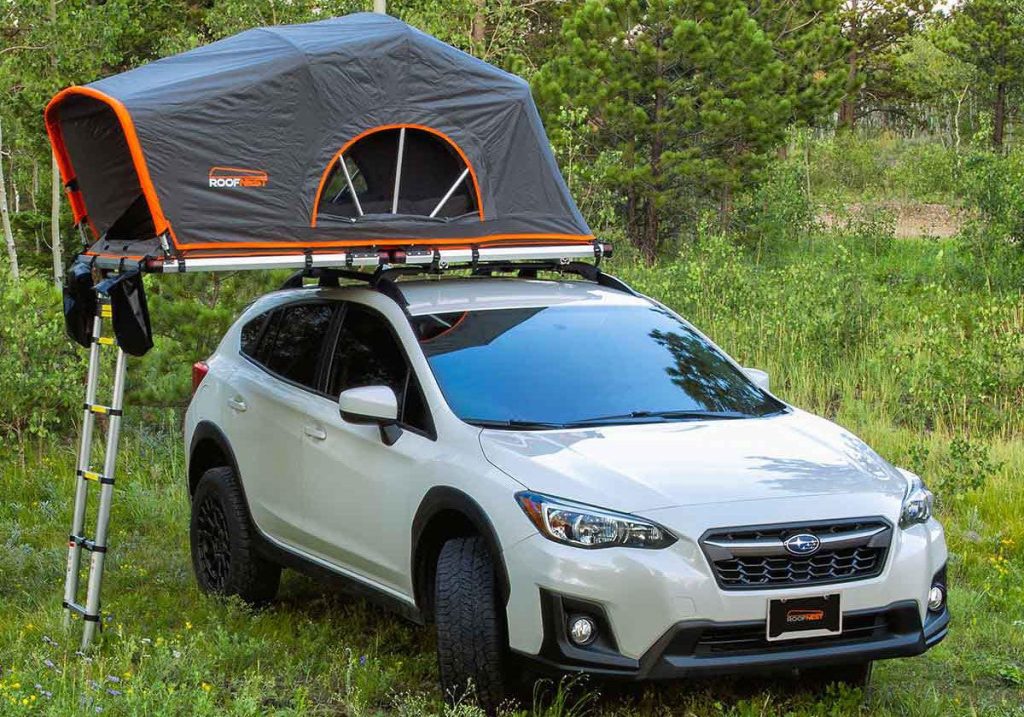
The Roofnest Meadowlark is a newer entrant that aims to fill the niche of lightweight, quick-setup rooftop tents designed for smaller vehicles or users who want minimal bulk but still desire comfort and decent protection. It’s not as large or durable as heavy-duty models like the Nomadic, but excels in portability, ease of use, and lower profile.
Specifications
| Spec | Details |
|---|---|
| Dimensions open | Interior: ~80 in (L) × 43 in (W) |
| Dimensions closed | Exterior approx. 47 in (L) × 44 in (W); height when closed ~12 in |
| Sleeping footprint | Same as interior L×W ~80 × 43 in – comfortably 1-2 persons |
| Peak internal height | ~36 in when open |
| Weight | ~90 lbs (≈ 41 kg) |
| Static weight capacity | Manufacturer doesn’t always publish a large static load number; intended for two occupants and light gear; roof and rack capacity must be strong. |
| Minimum bar spread | Front-to-back crossbars: minimum ~28 in; width between Roofnest mounting rails ~23.6 in. |
Pros
-
Very lightweight for a soft-shell tent, making it more accessible to smaller SUVs, Jeeps, crossovers, or even sedans that can handle 90 lbs load.
-
Lower closed profile (only ~12 in high), which helps with clearance (garage doors, drive-throughs) and better aerodynamics when driving.
-
Quick setup: unfolding, ladder, locking bars – designed to pop up fast, with fewer poles and simpler design.
-
Good materials for its class: rainfly, polycotton body, aluminum alloy frame/slats, foam mattress, LED interior lighting, etc.
Cons
-
Smaller footprint: two people with gear may feel cramped depending on gear volume; longer persons (above ~6′/183 cm) will need to angle or compromise.
-
Lower static capacity than heavy duty tents; not ideal for large gear loads, heavy snow, or frequent winter use.
-
Less insulation, thinner fabrics compared to “overland-duty” tents, so cold weather performance is less robust.
-
Some users report less ruggedness over time under heavy use; wear on seams, zippers, ladder mount are weak points in lightweight tents.
Price
-
Typical retail price (2024-2025): around CAD $1,995 (in Canada) for the base Meadowlark model. In USD or other markets price will vary depending on shipping / import / retailer markup.
-
Offers good value for its category (lightweight / hybrid soft shell), but add accessories or mount kits can add to cost.
Front Runner Feather-Lite — Rating: 7.9/10
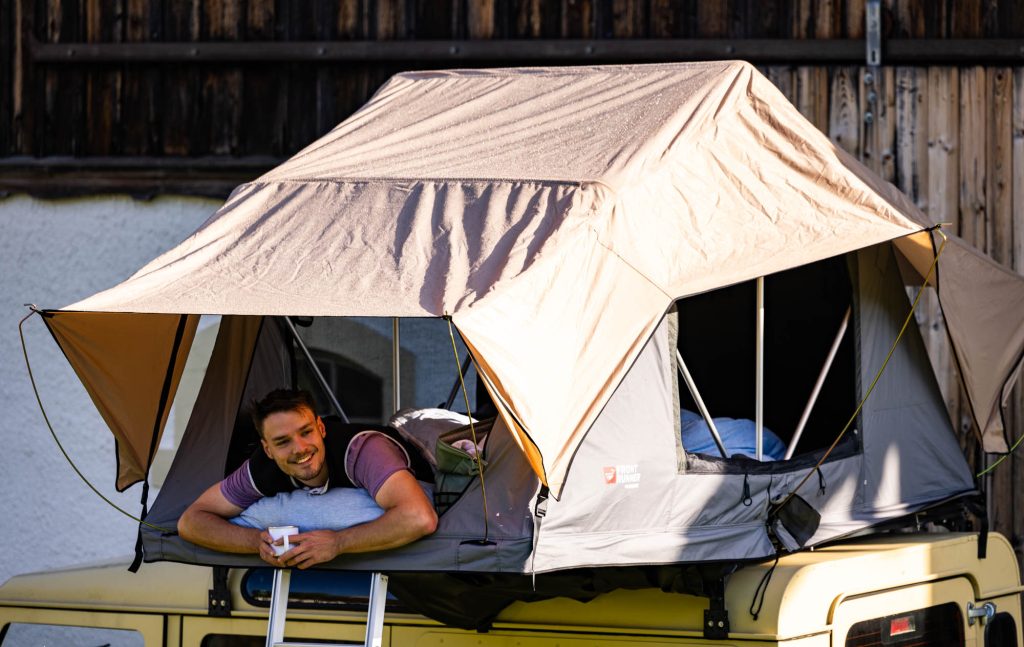
The Front Runner Feather-Lite is aimed at those wanting a relatively lightweight, low-profile soft-shell RTT that still provides generous room and decent amenities. It’s particularly good if your vehicle has moderate roof load limits and you prefer minimizing wind resistance and bulk when driving.
Specifications
| Spec | Details |
|---|---|
| Dimensions open | ≈ 134 in (L) × 53 in (W) × 55 in (H) exterior with rainfly; interior floor ~96 in × 51 in; peak internal height ~46 in. |
| Dimensions closed | ≈ 49 in L × 53 in W × 12-13 in H (with cover and ladder) |
| Sleeping footprint | ≈ 78-80 in L × 47-51 in W (two adults comfortably) |
| Peak internal height | ~ 46 in (≈ 1168 mm) at the highest point when open. |
| Weight | ~ 93 lb (≈ 43 kg) |
| Static weight capacity | ~ 600 lb (≈ 270 kg) load rating. |
| Minimum bar spread | Needs crossbars that can support the width (~53 in) and load; specific minimum spread not clearly published, but the included mounting rails/tracks are fairly flexible. |
Pros
-
Very low profile when closed (~12-13 in), which helps with clearance and reduces wind drag.
-
Light for its size: 93 lb is manageable for many SUVs/Jeep setups, making setup and mounting easier.
-
Good internal height and roomy sleeping area for two; tall enough to sit up comfortably.
-
Thick mattress (≈ 2.25 in / 6 cm) with washable cover, ventilation options, panoramic windows/skylights; durable cover and rainfly.
-
Strong build materials: water-repellent poly-cotton ripstop body, 400D Oxford fabric for rainfly and protection cover.
Cons
-
Even though relatively light, it’s still substantial; for smaller Jeeps or with a lot of roof load (gear, racks, etc.), weight will matter.
-
Closed size (particularly length and width) is still large — takes up significant roof space when folded.
-
Fewer accessories are shipped standard compared to premium models; annex, more advanced insulation, etc., are add-ons.
-
Setup and disassembly may require more time or effort compared to simpler flip-open tents. Some first-time users report needing help for certain mounting steps.
Price
-
Typical retail price (2024-2025): around US$1,400–$1,500 depending on dealer, shipping, and optional accessories (annex, extra covers, etc.).
Tuff Stuff (Trailhead / Elite Series) — Rating: 7.8/10
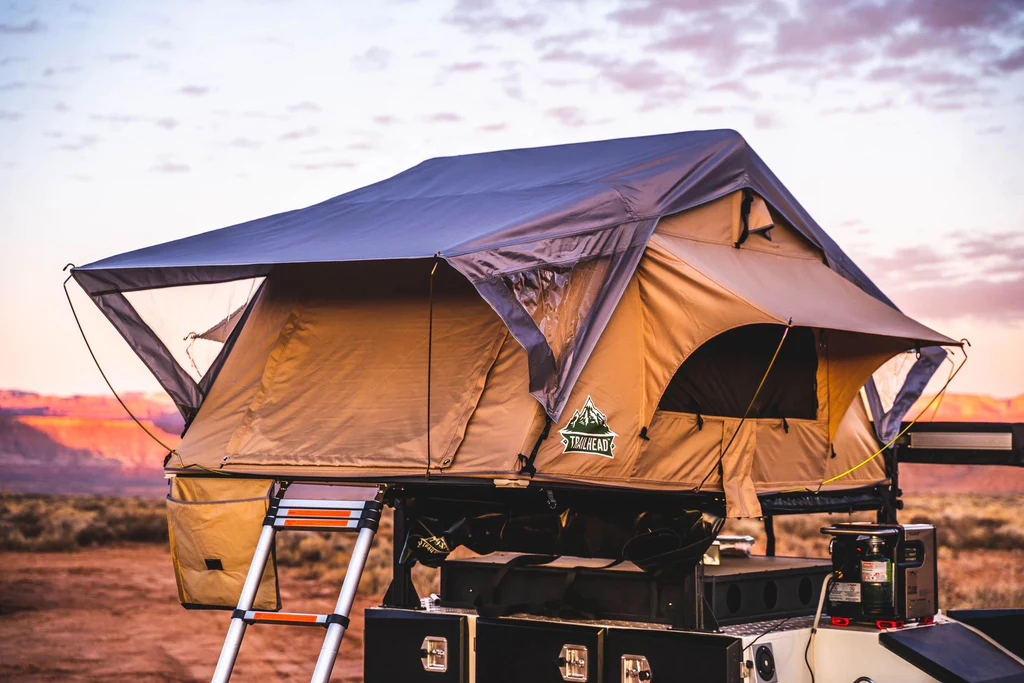
The Tuff Stuff Trailhead is a solid mid-price soft-shell RTT, offering good features, durability, and a strong weight-capacity rating. It’s especially good for users who want durability and robust specs without jumping to ultra-premium prices. The Elite series is larger/heavier and adds more features, but Trailhead is more representative of the mid-tier class.
Specifications (Trailhead 2-Person Model)
| Spec | Details |
|---|---|
| Dimensions open | 56 in (W) × 95 in (L) × 50 in (H) |
| Dimensions closed | 56 in × 48 in × 13 in |
| Sleeping footprint | ~ 55 in × 92.5 in (pad) for two people |
| Peak internal height | ~ 50 in interior height when open |
| Weight | ~ 110 lb (≈ 50 kg) |
| Static weight capacity | Rated to 800 lb (≈ 360 kg) |
| Minimum bar spread | Fits on crossbars up to ~ 3-3.25 in wide for mounting; exact minimum spacing needs checking based on rack, but hardware is included for bars up to ~3.25 in. |
Pros
-
High weight capacity (800 lb) for its size, quite strong for occupants plus gear.
-
Good height and interior space offering a comfortable sitting room.
-
Strong materials: 600D Oxford body fabric, PU coating, good waterproof rating (~3000 mm), UV protected.
-
Quality rainfly (420D), good zippers, solid ladder and frame; designed for three-season use.
-
Includes many useful accessories (driving cover, shoe bag, good windows, and ventilation).
Cons
-
Hefty: at 110 lb, this one is not light; mounting and frequent removal or travel maneuvers may be more tiring.
-
Closed size is fairly tall at 13 in, so some clearance issues, and a large footprint might block roof rack space.
-
Mattress is thinner (1.5 in) compared to premium tents; it might be less comfortable for longer stays.
-
Less insulated than heavier four-season models; performance in cold or very wet climates is less optimal.
Price
-
Typical retail price (2024-2025): approximately US$1,300–$1,500 for the Trailhead 2-person version (depending on retailer, shipping, area).
Soft-Shell Rooftop Tent Comparison (2025)
| Model | Rating | Open Dimensions | Closed Dimensions | Sleeping Footprint | Peak Height | Weight | Capacity | Price (USD) | Pros | Cons |
|---|---|---|---|---|---|---|---|---|---|---|
| Thule Approach M | 9.2/10 | 95 × 56 × 40 in | 49 × 56 × 11 in | 95 × 51 in | ~40 in | 128 lb | 600 lb | $2,300–$2,700 | Spacious, tall inside, quick setup, premium materials | Expensive, heavy, adds wind drag |
| Thule Foothill | 9.0/10 | 84 × 47 × 37 in | 83 × 24 × 9.5 in | 84 × 47 in | ~37 in | 122 lb | 600 lb | $1,700–$2,000 | Very narrow, low profile, roof space-saving | Snug for 2 adults, pricey for compact |
| Yakima SkyRise HD | 8.8/10 | 96 × 56 × 48 in | 58 × 48 × 16.5 in | 96 × 56 in | ~48 in | 154 lb | 600 lb | $2,500–$2,900 | Rugged build, spacious, thick mattress, 4-season use | Heavy, bulky closed size, slower setup |
| Smittybilt GEN2 Overlander | 8.3/10 | 95 × 56 × 51 in | Not fully published | 92 × 55 in | ~51 in | ~130–160 lb | 660 lb | $1,400–$2,100 | Good value, tall inside, strong materials, extras included | Bulky, heavy, not as refined as premium tents |
| OVS Nomadic 3 Extended | 8.4/10 | 122 × 63 × 51 in | 63 × 47 × 14 in | 63 × 94.5 in | ~51 in | 165 lb | 850 lb | ~$1,399+ | Very large, durable build, 3″ mattress, good warranty | Very heavy, big closed size, setup best with 2 people |
| Roofnest Meadowlark | 8.0/10 | 80 × 43 in | 47 × 44 × 12 in | 80 × 43 in | ~36 in | 90 lb | For 1–2 | ~$1,995 CAD (~$1,500 USD) | Lightweight, compact, fast setup, low profile | Small footprint, less insulation, not for harsh weather |
| Front Runner Feather-Lite | 7.9/10 | 134 × 53 × 55 in | 49 × 53 × 12–13 in | ~78–80 × 47–51 in | ~46 in | 93 lb | 600 lb | $1,400–$1,500 | Lightweight, roomy, tall inside, low profile | Large roof footprint, fewer included accessories |
| Tuff Stuff Trailhead | 7.8/10 | 95 × 56 × 50 in | 56 × 48 × 13 in | 92.5 × 55 in | ~50 in | 110 lb | 800 lb | $1,300–$1,500 | High capacity, solid build, many accessories included | Thinner mattress, tall closed size, less insulated |
How We Tested the Best Soft Shell Roof Top Tents
We evaluate tents using a mix of hands-on field testing and objective lab/bench checks to reflect real owner experience and measurable performance. Our testing protocol concentrates on the features that matter most to SUV and Jeep campers.
1) Fit & Compatibility (Pre-installation check)
-
Verified rack/clamp compatibility, measured minimum/maximum bar spread, and confirmed how the tent interacts with popular crossbar systems. We also checked closed dimensions for clearance in garages, carports, and on low overpasses. Manufacturer specs were cross-checked with physical measurements where possible.
2) Setup & Breakdown
-
Timed single-person and two-person setups on flat ground (including ladder deployment and rainfly installation). We evaluated how many steps/tools are required, and whether the mechanism is intuitive under real conditions (wind, low light). Quick, repeatable setup is essential for weekend users.
3) Comfort & Sleep Quality
-
Measured mattress thickness, assessed mattress materials, and slept multiple nights in each tent across temperatures. We noted condensation behavior, ventilation options (mesh panels, skylights), and interior usable headroom. Comfort is a high-weight criterion because many buyers value sleep quality.
4) Weatherproofing & Durability
-
Performed controlled water resistance checks (rainfly, seams, zipper integrity), wind stability evaluation (simulated gusts and anchoring), and checked materials (fabric denier, PU coating ratings). We also inspected stitching, hardware, and base durability. Manufacturer stress tests and third-party lab info supplemented field tests.
5) Weight & Vehicle Impact
-
Weigh each packaged tent and estimated installed center-of-gravity effects. We compared tent weight to typical SUV roof load limits and noted when a tent would require a heavy-duty rack or limit other roof cargo. Fuel economy and handling impacts were discussed qualitatively based on the closed profile and frontal area.
6) Long-term Use & Practicality
-
Evaluated storage/transportation (closed size), accessory ecosystem (annexes, awnings, insect screens), and maintenance (fabric care, repairability). We also considered warranty and manufacturer support.
Scoring weight (how a final rating is derived)
-
Comfort & mattress: 25%
-
Build quality & durability: 20%
-
Weather performance: 15%
-
Setup & usability: 15%
-
Weight & compatibility with SUVs/Jeeps: 15%
-
Price & value: 10%
This blend favors tents that are comfortable and durable while still acknowledging vehicle compatibility and real-world usability.
Price & Value
Rooftop tent pricing varies widely based on size, materials, brand, and included accessories. Below is a practical tier breakdown to help SUV and Jeep owners choose by budget and priorities.
Budget (≈ Under $1,200 USD)
What to expect:
-
Basic soft-shell RTTs or smaller hardshell/compact options. Materials are serviceable (often 600D polyester), mattresses are thinner, and closed height may be taller for some low-cost models. Good for occasional campers or first-time RTT buyers who want value and basic protection.
-
Pros: Lower entry cost, decent sleeping comfort for short trips, many come with essential hardware.
-
Cons: Heavier relative to features, shorter warranties, less refined finish, possibly lower water-resistance and thinner mattress.
-
Example models in or near this tier: some basic entry models from smaller brands; note that many well-known soft-shells now fall above this range. Prices in this tier fluctuate with sales.
Mid-Tier (≈ $1,200–$2,000 USD)
What to expect:
-
The sweet spot for most SUV and Jeep owners. Tents in this range (like many models from Smittybilt, Front Runner, Tuff Stuff) provide better fabrics, thicker mattresses, stronger bases, and more refined fittings. You’ll often get better weatherproofing, higher weight capacities, and useful accessories.
-
Pros: Best balance of durability, comfort, and price; many models include extras (driving cover, better mattress, more robust ladder). Good for frequent campers and short overland trips.
-
Cons: Still heavier than the lightest designs; some premium features (automatic opening, advanced insulation, integrated hardtops) reserved for higher tiers.
-
Examples: Smittybilt GEN2 Overlander (standard) and models like Front Runner Feather-Lite or Tuff Stuff Trailhead frequently sit in this band.
Premium (≈ $2,000 USD and up)
What to expect:
-
Premium soft-shell and hybrid designs (including large, feature-rich tents from Thule, Yakima HD, and high-end Roofnest variants). These tents emphasize high-grade fabrics, thicker mattresses, speedy/usability upgrades, lower closed profiles for some models, and often better warranties and customer support. Many premium tents are engineered for 3–4 season use with superior materials and features.
-
Pros: Superior comfort, advanced weatherproofing, polished fit & finish, often better mounting systems and theft-deterrent locks. Ideal for heavy users and overlanders who need reliability and long-term comfort.
-
Cons: Heaviest and most expensive; may require upgraded racks and affect fuel economy/clearance more noticeably.
-
Example price points: Thule Approach M and Yakima SkyRise HD typically retail above $2,000 (often $2,300–$2,900 depending on size and region).
Final buying note on value
-
Match tent tier to use case: If you camp a few weekends per year, a solid mid-tier tent (better mattress and weather protection) is usually the best value. If you’re on the road full-time or traveling in harsh conditions, the premium tier’s durability and comfort justify the cost. If you’re a casual camper on a tight budget, an entry/budget tent can work but plan to upgrade the mattress or add accessories later.
Buyer’s Guide: How to Choose the Best Soft Shell Roof Top Tent
What Fits Your Vehicle?
The first step in choosing the right soft shell RTT is confirming whether your SUV or Jeep roof and rack can handle the weight. Always check two limits:
-
Dynamic weight capacity (while driving).
-
Static weight capacity (when parked).
Soft shells vary between 100–170 lbs, so your rack needs to support that plus occupants. Compact SUVs may require lighter models like the Roofnest Meadowlark, while Jeeps and mid-size SUVs can handle larger, multi-person tents.
What Else Do You Need to Carry?
If you also plan to bring bikes, kayaks, or cargo boxes, consider the footprint of your RTT. Narrower models like the Thule Foothill leave more roof space, while wide options cover most of the rack. Weight distribution matters too; overloading one side of the roof impacts handling and fuel economy.
Soft Shell vs. Hard Shell
-
Soft shell RTTs are generally lighter, more affordable, and offer larger sleeping areas when unfolded.
-
Hard shells set up faster and are more aerodynamic when closed, but cost more and usually sleep fewer people.
If you camp frequently and value speed, a hardshell might be worth it. If you want maximum space for family or pets, soft shell tents are often the better choice.
Space vs. Weight
Soft shells can sleep 2–4 people, sometimes more with annexes. But more space usually means more weight. Match tent capacity to your actual group size to avoid unnecessary strain on your vehicle. A mid-weight 2–3 person tent often strikes the best balance for SUV and Jeep owners.
Manual vs. Automatic Opening
Most soft shells use a manual fold-out design with a telescoping ladder, which takes 3–8 minutes to set up. Some newer premium models include gas struts or semi-automatic features that speed deployment. If convenience is a top priority, look for models with assisted opening.
Durability
Durability comes down to fabric quality, waterproofing, base construction, and hardware. Look for:
-
600D+ ripstop polycotton blends with PU coating.
-
Aluminum bases and stainless-steel hinges.
-
Replaceable parts (zippers, ladders, covers).
A tent’s long-term value is tied to durability—paying more upfront often means fewer failures and longer lifespan.
Frequently Asked Questions
What is the benefit of a Soft Shell roof top tent?
Soft shells are lighter, cheaper, and offer more sleeping space than hard shells. They’re great for families or overlanders who need room and comfort without breaking the bank.
Can you put a Soft Shell roof top tent on a car?
Yes, as long as the car’s roof and rack system meet the tent’s weight requirements. Smaller sedans may be limited to compact or lightweight models. SUVs and Jeeps are usually better suited.
What is the cheapest Soft Shell roof top tent?
Budget-friendly models start around $900–$1,200 USD, such as entry-level Tuff Stuff or Smittybilt RTTs. They’re basic but functional for weekend trips.
Will a Soft Shell roof top tent affect my gas mileage?
Yes, any RTT increases drag and adds weight, reducing fuel efficiency. Soft shells usually add more wind resistance than low-profile hardshells, but careful packing and removing when not in use helps.
If I want to bring my dog into my Soft Shell roof top tent, how do I do it?
Small to medium dogs can climb ladders with practice or with a ladder mat. Larger dogs may need a ramp or to be lifted. Some tents offer annex rooms so your pet can sleep on the ground but still sheltered.
My Soft Shell roof top tent ladder hurts my feet. What should I do?
Many stock ladders are narrow. Solutions include:
-
Adding ladder sleeves or covers.
-
Wearing shoes when climbing.
-
Upgrading to a wider aftermarket ladder.
How hard is it to install a Soft Shell roof top tent on my car?
Installation takes 1–2 people about 30–60 minutes. It involves bolting mounting brackets to your crossbars. Once installed, the tent can stay mounted or be removed seasonally.
Can I heat my Soft Shell roof top tent?
Yes. Safe heating options include:
-
Electric blankets (with proper power supply).
-
Diesel/propane heaters with external exhaust (never inside).
-
Insulated liners or thermal blankets.
Never use open flames inside your tent due to carbon monoxide risk.
Read More: Best Rooftop Tents for Overlanding in 2025 [Real-World Tested]

